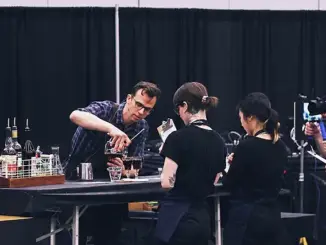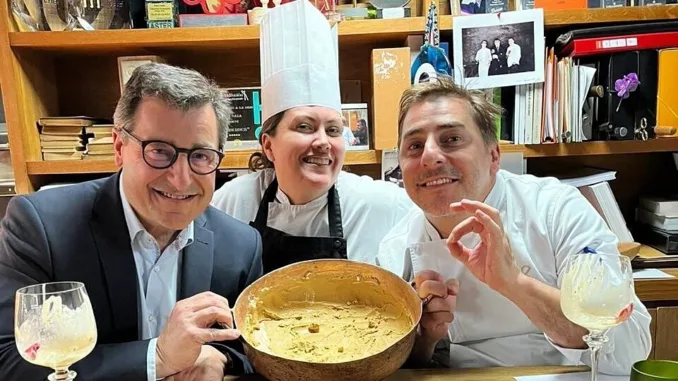
Discover the journey of Liz Escobar, a Colombian coffee producer and chef, as she blends the worlds of specialty coffee and fine dining.
BY VASILEIA FANARIOTI
SENIOR ONLINE CORRESPONDENT
Photos courtesy of Liz Escobar
Liz Escobar, a Colombian coffee producer and roaster now based in Scandinavia, is passionate about specialty coffee, but also an accomplished chef. Her unique blend of skills allows her to navigate the worlds of specialty coffee and haute cuisine, helping Michelin-starred restaurants like Celler Can Roca in Spain elevate their coffee offerings.
At Celler Can Roca, she collaborated with renowned figures such as sommelier Josep Roca and pastry chef Jordi Roca, both internationally acclaimed in their fields. Other key contributors to this collaboration include sommelier Cyril Vermeulen, Marianna Suarez D’Alessandro, and sommelier Emiliano Ruiz.
In Northern Sweden, Liz continues her journey at Restaurant Bryggargatan under the mentorship of chef and owner Jon Oskar Arnason, who is also mentoring Liz to compete in Sweden’s next Coffee in Good Spirits Championship. In this interview, Liz shares her journey, the challenges she faces, and her innovative projects that marry her two loves: coffee and fine dining.
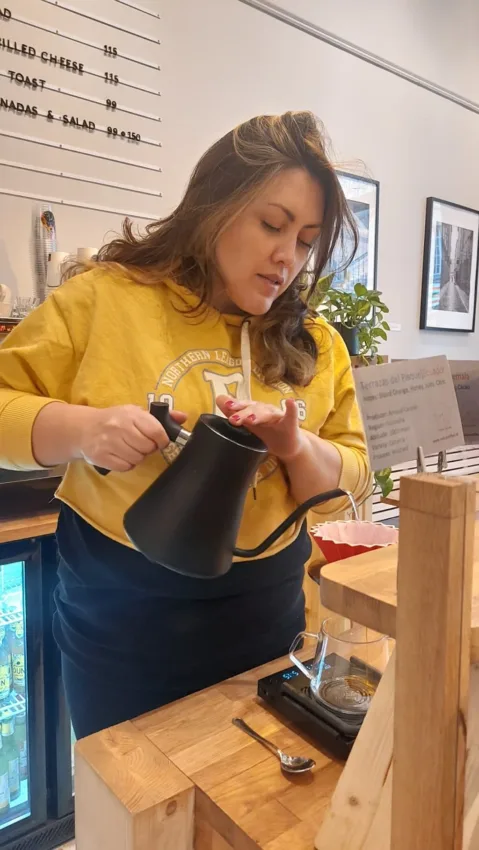
Barista Magazine: How did your culinary background influence your approach to coffee?
Liz Escobar: My culinary experience has had a huge impact on how I work with coffee. In the roasting process, for example, many roasters focus on temperatures and timing, but I treat it like cooking. I rely heavily on my senses—smelling, observing colors, and tasting. It’s similar to cooking, where you have to pay attention to the details. I taste the beans, observe their development, and decide how far I want to go based on what I want to achieve.
It sounds like you treat coffee almost like an ingredient in a dish. Has your coffee background influenced your culinary work as well?
Absolutely. The experimentation mindset from cooking has carried over to coffee. In cooking, we constantly experiment with ingredients, and I apply that to coffee as well. For instance, I’ve played around with fermentation processes in coffee, much like how chefs experiment with fermentation in cooking. It’s about pushing boundaries and not being afraid to try new things.
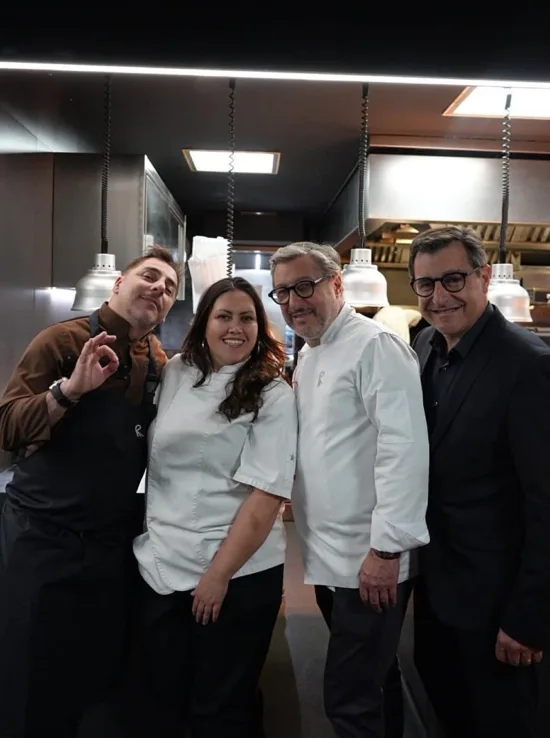
How do you see the relationship between coffee and fine dining? Are there similarities or differences that stand out to you?
One of the biggest challenges is that many chefs don’t fully appreciate the complexity of coffee. They often see coffee as just a strong flavor, without recognizing the nuances of specialty coffee. Surprisingly, I’ve found that sommeliers, rather than chefs, are more open to understanding coffee. They’re familiar with tasting notes in wine and can apply that knowledge to coffee. That’s why, when introducing coffee to a fine dining setting, I often start with the sommeliers—they can appreciate the subtle flavors and help integrate coffee into the overall dining experience.
How do you go about educating chefs and restaurant staff about specialty coffee?
I usually start with cupping sessions where I present a variety of coffees, including the one they’re currently using, without telling them which is which. I guide them through the tasting process, helping them notice the differences between washed, honey, natural, and fermented coffees. I also use analogies they’re familiar with, like comparing different roast levels to toasted bread. This helps them understand how the roasting process affects flavor. Once they’ve tasted the range of flavors coffee can offer, they become more open to incorporating specialty coffee into their menus.
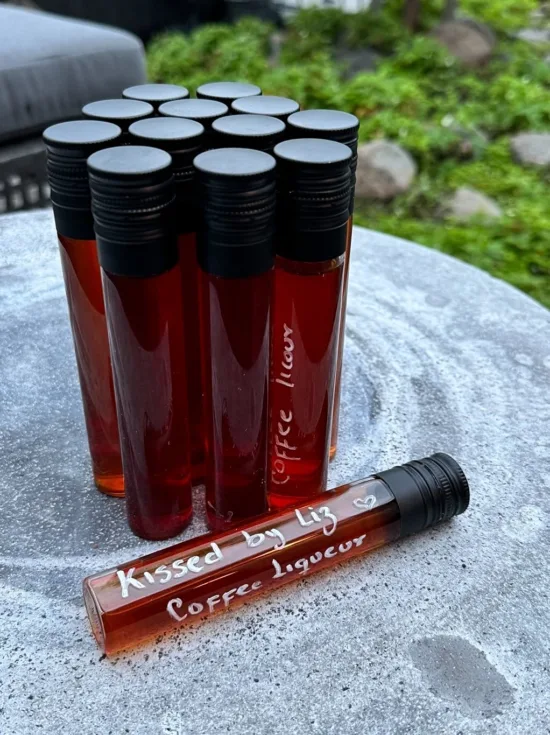
What challenges have you faced in integrating specialty coffee into fine dining, particularly in Scandinavia?
The main challenge is ignorance about what specialty coffee truly is. Many people, even in fine dining, still think of coffee as just a generic flavor. This ignorance is widespread, not just in Scandinavia but also in places like Spain. Changing these perceptions requires education, which is why I focus on flavor first. Once they experience the diverse flavors coffee can offer, they start asking more questions and become more interested.
What are some of your upcoming projects and collaborations?
I’m currently focused on developing a coffee kitchen concept where people can experience coffee paired with small desserts or dishes. The idea is to highlight the unique notes in each coffee and create a fine dining experience around it. I’m also working on launching a coffee liqueur. This project is still in the early stages, but I’m excited about its potential.
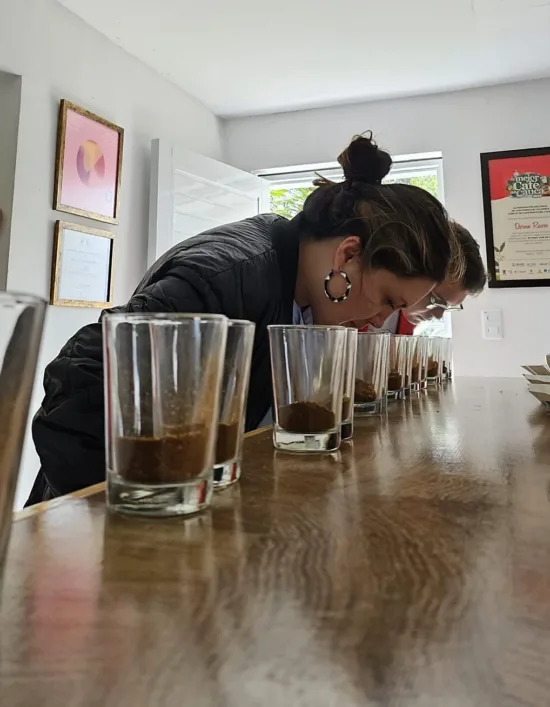
You seem to have endless energy for new ideas and projects. What drives you?
Honestly, I don’t have a master plan. I’m passionate about life and open to new experiences. I never say no to an adventure, which is why I end up with so many projects. For me, it’s about staying curious and willing to learn from different areas. Whether it’s coffee, culinary arts, or something entirely new, I’m always ready to explore.
ABOUT THE AUTHOR
Vasileia Fanarioti (she/her) is a senior online correspondent for Barista Magazine and a freelance copywriter and editor with a primary focus on the coffee niche. She has also been a volunteer copywriter for the I’M NOT A BARISTA NPO, providing content to help educate people about baristas and their work.
Subscribe and More!
Out now: It’s the August + September 2024 issue of Barista Magazine! Read it for free with our digital edition. And for more than three years’ worth of issues, visit our digital edition archives here.
You can order a hard copy of the magazine through our online store here, or start a subscription for one year or two.



